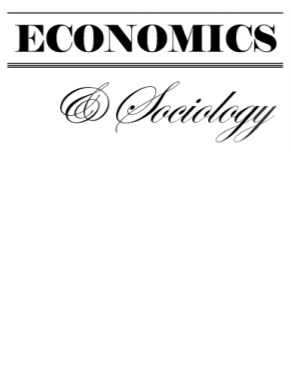IMPACT OF THE SHADOW ECONOMY ON SOCIAL SAFETY: THE EXPERIENCE OF UKRAINE
IMPACT OF THE SHADOW ECONOMY ON SOCIAL SAFETY: THE EXPERIENCE OF UKRAINE
Author(s): Halyna Mishchuk, Svitlana Bilan, Halyna Yurchyk, Liudmila Akimova, Mykolas NavickasSubject(s): Economic policy, Welfare systems, Political economy, Economic development, Fiscal Politics / Budgeting
Published by: Fundacja Centrum Badań Socjologicznych
Keywords: shadow economy; social safety; social security; GDP; fiscal losses;
Summary/Abstract: The links between lawful economy and the shadow economy with social safety are investigated. Based on the existing methods of estimating the shadow economy, it is determined that its official level in Ukraine exceeds the critical one (30% according to the Ministry of Economy) by most estimation methods and was ranging from 18 to 46% in 2018. This significant shadowing of the economy has a negative impact on GDP (correlation coefficient -0.729) and; is directly related to the low competitiveness of the economy as per the world rankings. Having impact on the generation of secondary income through fiscal redistribution mechanisms, the shadow economy has a negative impact on the main components of social safety, including the spread of poverty, maintaining an inefficient cost structure with a high share of food expenditures (which is also a sign of low living standards); and limited housing opportunities. The relationship between the shadow economy on the one hand and economic & social safety on the other (-0.865 and -0.560, respectively) has been determined using the correlation analysis. Economic losses from the reduction of tax revenues to the budget have been estimated to confirm the need to develop mechanisms to unshadow the economy as one of top priorities for public administration in the social sphere in Ukraine.
Journal: Economics and Sociology
- Issue Year: 13/2020
- Issue No: 2
- Page Range: 289-303
- Page Count: 15
- Language: English

